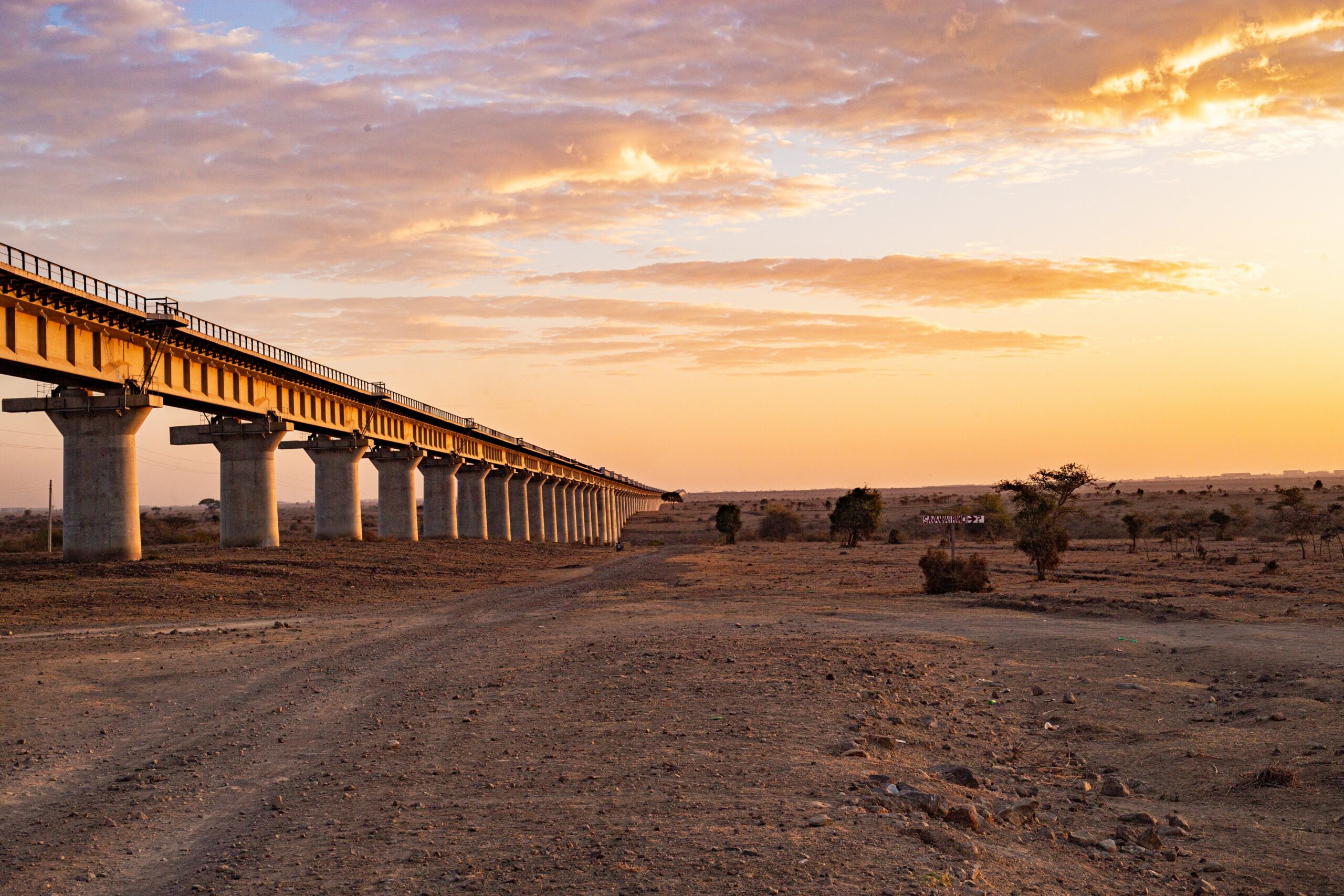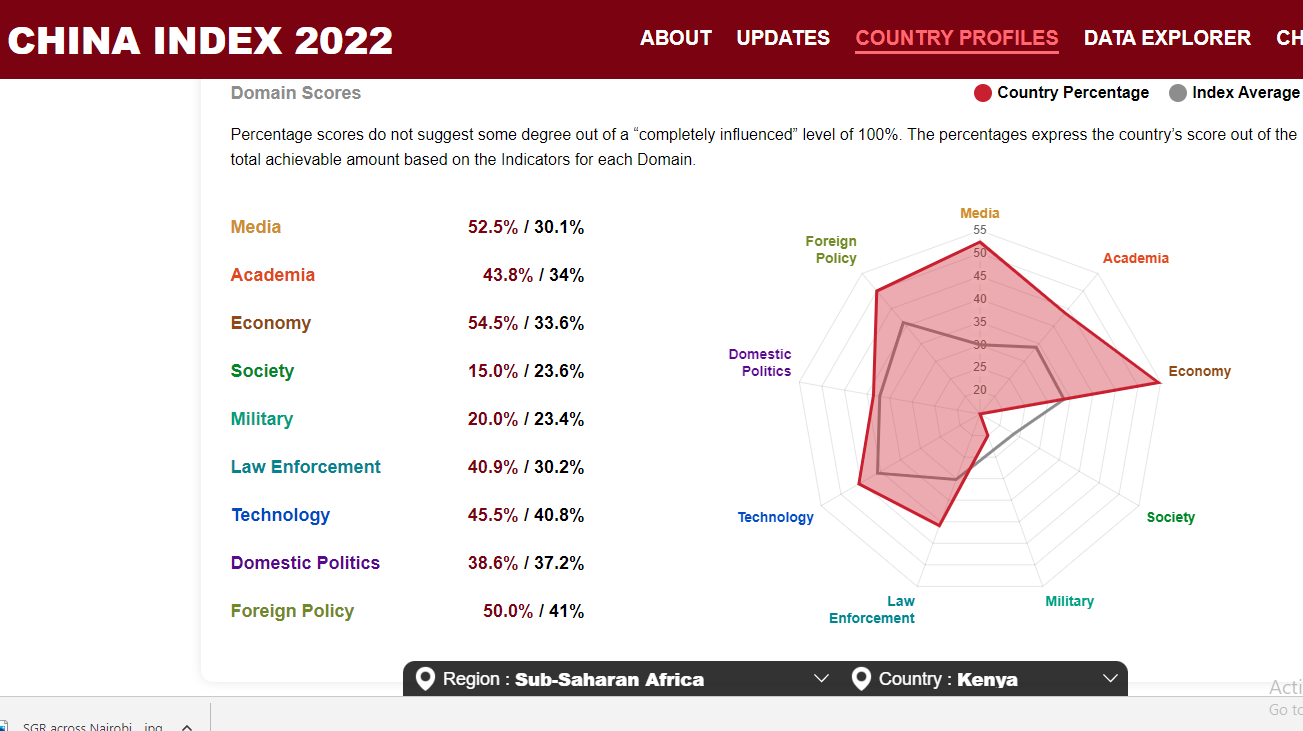China’s influence in Kenya is heavily felt in the country's economy
Originally published on Global Voices

A photo of the Standard Gauge Railway (SGR), one of the massive construction projects under the China Belt and Road Initiative. Image credit, Irewolede, source; Unsplash
A recent incident involving the shutdown and then reopening of the operations of a Chinese trade shop in Kenya has brought to the forefront straining relations between the two countries. The Chinese Embassy in Kenya issued a statement in reaction to the closing of China Square on 1st March. Following several engagements between the Kenya Government and the Chinese Community in Kenya, the retail store resumed operations.
In February, a group of Kenyan traders in Nairobi organized a demonstration against Chinese traders who they claimed were engaging in unfair trade practices and taking business away from local entrepreneurs. The traders marched to the deputy president's office demanding an end to what they called a “China invasion”:
数以万计的肯尼亚民众示威游行,要求将中国零售商和制造商赶出肯尼亚。 pic.twitter.com/WUhoyDA5sv
— 谢万军 Wanjun Xie (@wanjunxie) March 2, 2023
Thousands of Kenyans protested in the streets demanding Chinese retailers and manufacturers leave the country.
Kenya’s current relationship status with China can aptly be described as, “It's complicated.”
Only days after the store was closed following a directive by Cabinet Secretary for Investments, Trade, and Industry, Moses Kuria, the Chinese Embassy in Kenya released a statement via their Twitter handle. The statement urged the Kenyan government to protect the legitimate rights and interests of Chinese enterprises and citizens, and create an inclusive and friendly business environment. Shortly after that statement, Kuria backtracked on his directive and the store reopened.
— Chinese Embassy in Kenya (@ChineseEmbKenya) March 1, 2023
The Chinese store row is now at the heart of a simmering strained relationship that has previously only been happening behind closed doors as Kenya struggles to restructure its Chinese debt.
China’s Belt and Road Initiative in Kenya
When the newly elected Kenyan president, William Ruto took over power last year, he inherited a country that is now drowning in public debt to the tune of approximately US $56 billion with China as the single largest bilateral lender.
Kenya became the third country in Africa after South Africa and Egypt to sign on to the China Belt and Road Initiative (BRI) in 2017 under President Uhuru Kenyatta. The BRI is a massive infrastructure project launched by China in 2013 that aims to connect Asia with Europe, the Middle East, and Africa through a network of ports, railways, highways, and other infrastructure projects.
The Chinese loans (financed by China Exim Bank) facilitated the construction of the Standard Gauge Railway (SGR), a major railway line connecting the port of Mombasa to Nairobi and eventually to neighbouring countries such as Uganda, Rwanda, and South Sudan.
The SGR was seen as a critical piece of infrastructure that would help boost Kenya's economy and increase regional trade. Chinese entities also constructed other colossal infrastructure projects including the Inland Dry Port in Naivasha Town; an upgrade of the Mombasa port; the construction of the Lamu deep sea port; and the development of the Naivasha inland dry port.
However, towards the end of his term, former Kenyan president Uhuru Kenyatta came under heavy criticism over his administration’s debt spree and the country’s public debt to China which currently stands at US $82 billion.
During his campaign trail, Ruto promised to review the country’s geo-economic relations with China, by making public the government infrastructure projects, and by deporting Chinese nationals working in Kenya illegally. His administration is now grappling with the reality of actually addressing these campaign promises.
China’s grip on Kenya’s economy

A screen grab of the 2022 China Index
China’s grip on Kenya’s economy has become a nightmare for Ruto whose grand promises are now coming back to bite him as the reality of the complexities of bilateral relations dawns on his administration. Issues related to China's Belt and Road Initiative have been the terms of Chinese loans with agreements skewed against the borrower, and the lack of transparency and accountability.
According to the recent China Index — a report measuring China’s presence across the world — China’s influence in Kenya is heavily felt in virtually all key sectors such as the economy (54.5 percent), media (52.5 percent), foreign policy (50 percent), technology (45.5 percent), and academia (43.8 percent).
Reports of inflated costs and corruption in the construction of the Standard Gauge Railway (SGR) led to accusations that Chinese contractors and officials are skimming off the top of the project's budget. Additionally, there have been concerns about the environmental impact of Chinese-funded projects, such as the proposed Lamu coal plant, which has faced protests from environmentalists and local communities.
Last November, Ruto made true his campaign promise to publish documents related to $4.7 billion USD in loans for a controversial Chinese railway built under his predecessor. As he noted, many of the deals surrounding the infrastructure projects that the funds were borrowed are shrouded in opaqueness.
China’s grip on Kenya’s economy has become a nightmare for Ruto whose grand promises are now coming back to bite him as the reality of the complexities of bilateral relations dawns on his administration.
Growing tensions
In addition to the issues related to China's BRI, the recent protests against the Chinese store by Kenyan traders have further strained the geoeconomic relations between the two countries. According to 2022, Beijing's Global Media Influence report by Freedom House, the Chinese diaspora in Kenya is relatively small, estimated at between 20,000-36,000 individuals.
The incident, though, highlighted growing resentment among Kenyan traders towards Chinese businesses operating in the country. Many Kenyan business owners have complained that Chinese companies enjoy preferential treatment and are able to operate with lower costs and fewer regulations, putting local businesses at a disadvantage.
The move by Ruto’s officials to back down on the store row is a reflection of broader tensions in the relationship between Kenya and China, as the two countries navigate issues related to trade, investment, and development.
As President Ruto seeks to assert greater control over its economic relationship with China and ensure that it benefits the interests of Kenyan citizens, the optics of its administration's handling of the China store matter have left many Kenyans with fading hopes in his ability to deal with the debt crisis.
Post a Comment